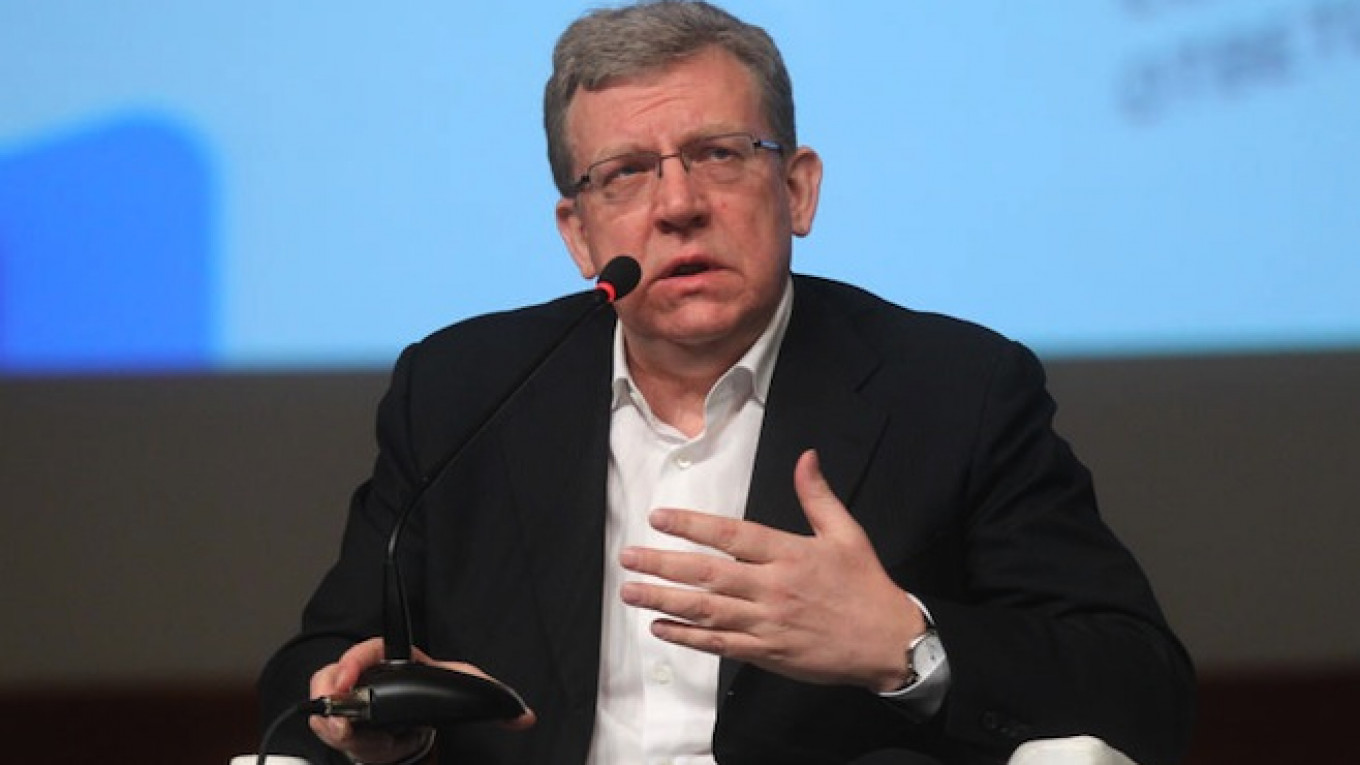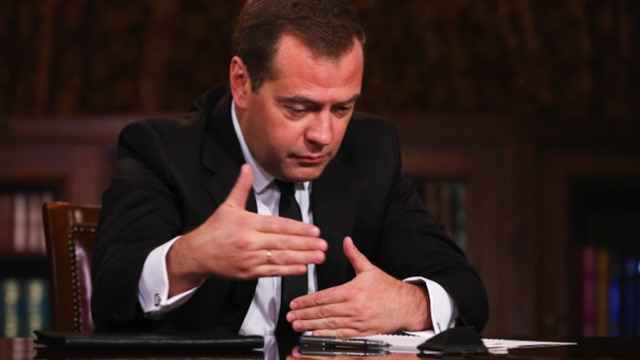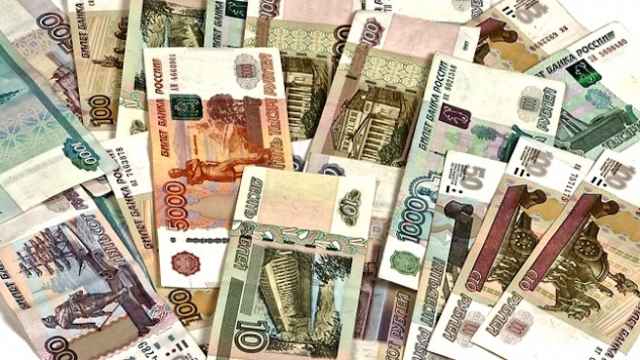Former Finance Minister Alexei Kudrin has been offered a senior position at Russia's main think tank on economic policy and may participate in the development of a new economic strategy for the Kremlin.
On Tuesday, Kudrin announced he would accept an offer to take a senior position at Russia's Center for Strategic Research. The center — which prepares plans for the development of the Russian economy — was established in 1999.
Kudrin noted that his duties and responsibilities in the center are currently under discussion.
Meanwhile, the Russian media, citing unidentified sources in the presidential administration, reported earlier on Tuesday that Kudrin is discussing with President Vladimir Putin the possibility of creating a new national economic program from outside the government.
Kudrin may be taking up the position at Russia's Center for Strategic Research for this reason, the sources said. Kudrin did not confirm this information and called it an “exaggeration.”
The Kremlin, however, did not exclude this possibility.
“He has excellent knowledge, he is one of the best finance ministers in the world, not only in Russia,” Putin's spokesman Dmitry Peskov said. “It would be wrong not to use his expertise for developing any [economic] plans,” Peskov was quoted by the RIA Novosti news agency as saying.
Kudrin served for more than 11 years as the country's finance minister and left the post in 2011 after a disagreement with Dmitry Medvedev, then the Russian president. The conflict occurred after Kudrin — at the time also the deputy prime minister — criticized an increase in military spending.
Negotiations on Kudrin's possible return to Putin's team have reportedly been ongoing since the end of last year.
Kudrin earlier in 2015 said he could return to the Russian government if the authorities focused on reforms, both political and economic.
Kudrin is an unusual figure in Russian politics. He has gained the reputation of a liberal and participated in protests in Moscow in December 2011 against alleged mass fraud in parliamentary elections.
However, he is also a long-time ally of the president, who trusts him as an economist. Born in St. Petersburg, Kudrin worked with Putin in the city government back in the 1990s.
Kudrin is currently the head of the Committee of Civil Initiatives, a civil society organization of professionals in key areas, founded by the former finance minister in 2012.
Valery Mironov, chief economist at the Higher School of Economics' Center for Development Institute, told The Moscow Times on Tuesday that Kudrin's new position means that the authorities are now ready for economic reforms.
“They thought that oil prices will rise, but that did not happen,” Mironov said.
He described Kudrin an ideal candidate to head the think tank that advises the government on economic policy.
Kudrin was the only politician in the 2000s who understood that the growth in oil prices was a temporary phenomenon. He began to create a reserve fund, to be used when the prices inevitably fell, Mironov said.
However, according to Mironov, Kudrin may refuse to be involved in creating a new economic program. Carrying out dramatic economic reforms is now necessary but also very difficult and even dangerous, as it will affect the interests of many Russian officials.
Some analysts doubt that Russia would implement economic changes recommended by Kudrin.
“It is clear that we have entered into an economic crisis which the present government can't cope with, so alternatives are needed,” Dmitry Travin, the research director at the European University in St. Petersburg told the Kommersant newspaper.
“Putin wants to receive the recommendations but I have no confidence that Putin will implement real political and economic changes,” he said.
Contact the author at a.bazenkova@imedia.ru
A Message from The Moscow Times:
Dear readers,
We are facing unprecedented challenges. Russia's Prosecutor General's Office has designated The Moscow Times as an "undesirable" organization, criminalizing our work and putting our staff at risk of prosecution. This follows our earlier unjust labeling as a "foreign agent."
These actions are direct attempts to silence independent journalism in Russia. The authorities claim our work "discredits the decisions of the Russian leadership." We see things differently: we strive to provide accurate, unbiased reporting on Russia.
We, the journalists of The Moscow Times, refuse to be silenced. But to continue our work, we need your help.
Your support, no matter how small, makes a world of difference. If you can, please support us monthly starting from just $2. It's quick to set up, and every contribution makes a significant impact.
By supporting The Moscow Times, you're defending open, independent journalism in the face of repression. Thank you for standing with us.
Remind me later.






